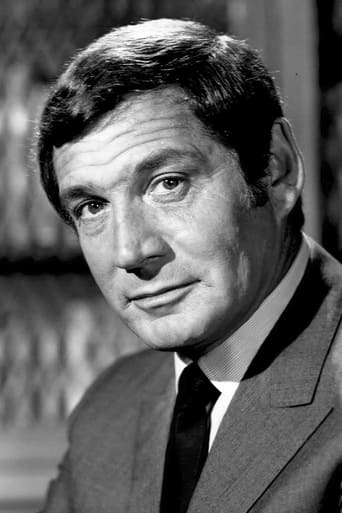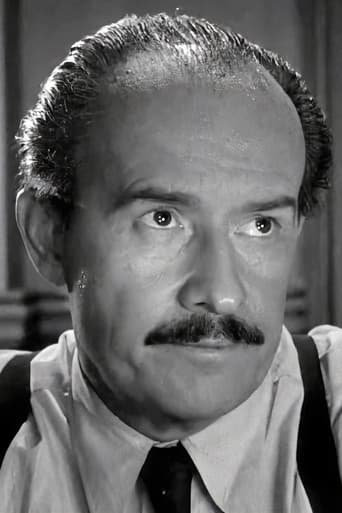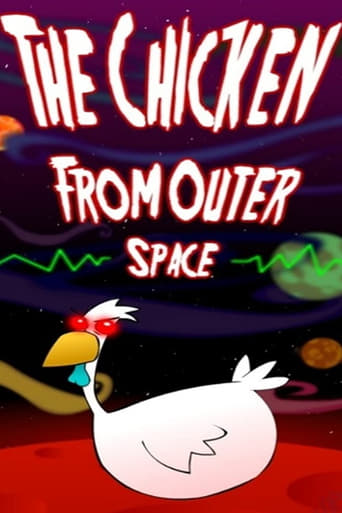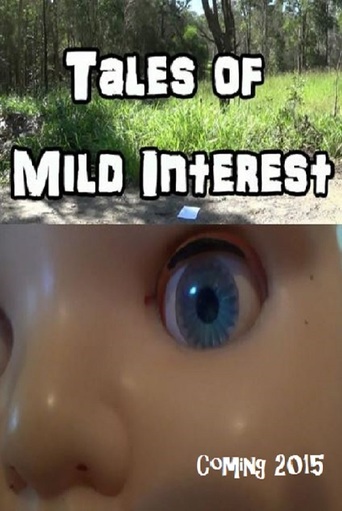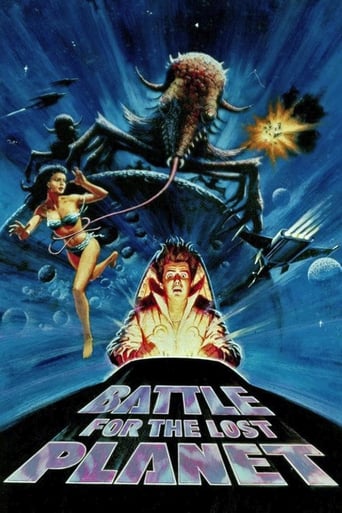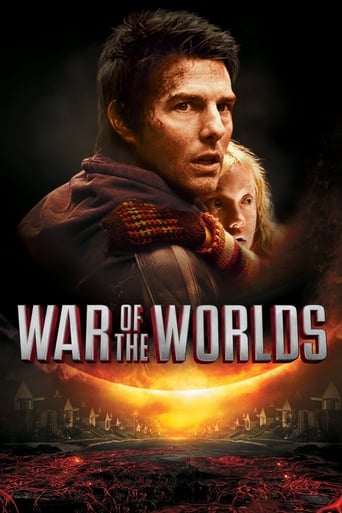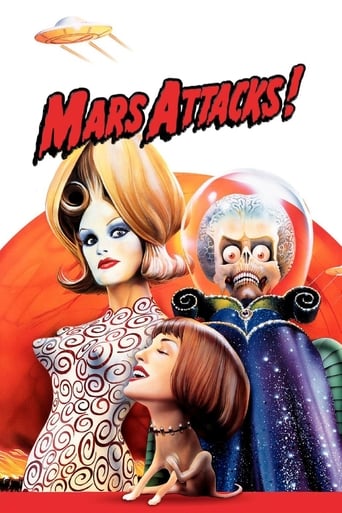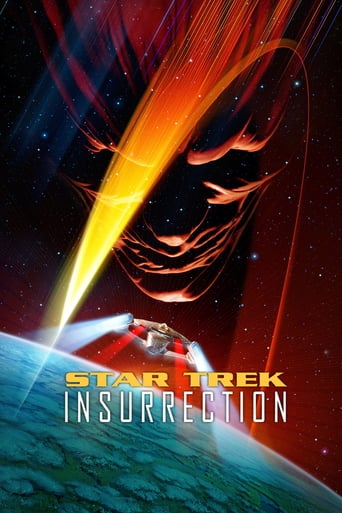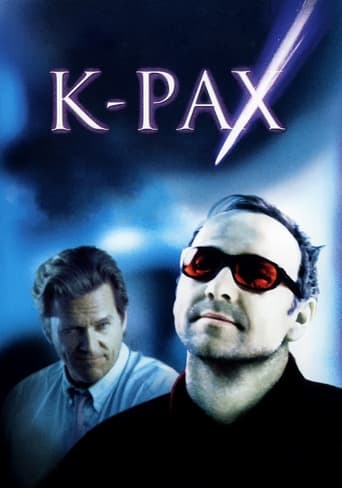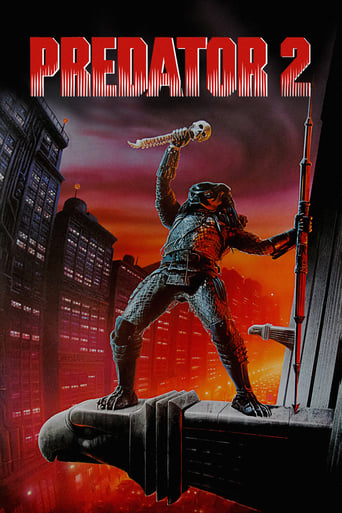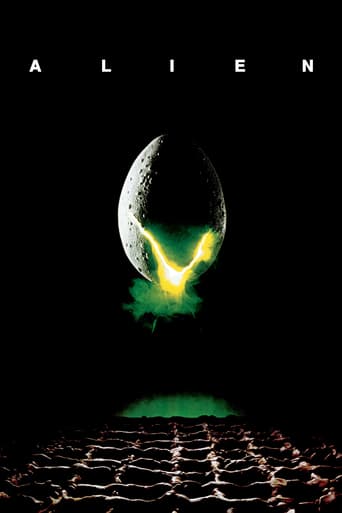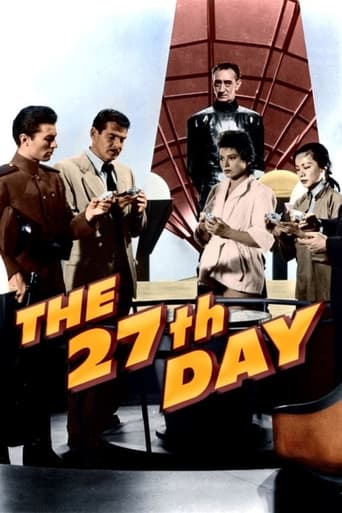
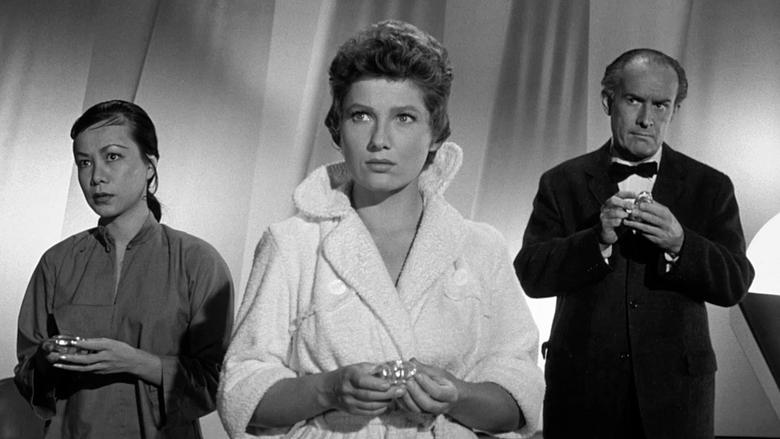
The 27th Day (1957)
Five individuals from five nations, including the USA, USSR, and China, suddenly find themselves on an alien saucer, where an alien gives each a container holding three capsules. The alien explains that no power on earth can open a given container except a mental command from the person to whom it is given, then anyone may take a capsule and, by speaking a latitude and longitude at it, cause instant death to all within a given radius: thus each of the five has been provided with the power of life and death. Then, they are given 27 days to decide whether to use the capsules, and returned to the places from which each one came...
Watch Trailer
Cast


Similar titles
Reviews
I am only giving this movie a 1 for the great cast, though I can't imagine what any of them were thinking. This movie was horrible
Easily the biggest piece of Right wing non sense propaganda I ever saw.
One of the most extraordinary films you will see this year. Take that as you want.
The film never slows down or bores, plunging from one harrowing sequence to the next.
Five seemingly random individuals find themselves mysteriously on board an alien craft. The alien gives each person three capsules. Each capsule is capable of wiping out vast sections of the Earth's population, but will not harm anything else. The five are sent back to their homes with their powerful weapons and told that they have 27 days in which to either use their devices to destroy humanity or find a way to live in peace. If they should chose to wipe-out the Earth's population, the aliens will take over the world. If not, the aliens will move on and look for another home. Each of the five is left with a horrible dilemma – how to handle this kind of power?I was going to get into detail on a whole political thing about some of the deeper aspects of The 27th Day, but I've since thought better of it. I usually write about the entertainment value of a film and what I liked and didn't like. I tend to leave the deep thinking for people who are much smarter than me. All I say on the subject is I would hate to see anyone allotted this kind of power given the current state of affairs in the world where words are considered a form of violence. I'd hate to see what someone would do with these capsules just because they felt slighted, etc. The ending of the films is especially troubling. So the people in the film discover how to use their devices to kill only those they consider evil because they do not support freedom? How do you decide who is in favor of freedom and what is your definition of evil? Were all those communists you wiped out really evil? Or were some of them living under a regime they did not agree with? Just a silly, illogical, nonsensical way to end the film. On to other things. So, was The 27th Day an entertaining film? Reading through some of the comments on IMDb, I know it has its fans, but I'm not really one of them. The film is well made, it has a reasonably interesting premise, and it features rock solid acting. But, unfortunately, it is all pretty much a bore. I found most of the movie as dry as dust. I had to fight with myself to stay awake. The relatively short 75 minute runtime just seemed to drag on and on forever. People talking and talking and talking with nothing much happening. Not what I call entertainment. And then there's that ending I've already discussed. What a mess. My one sentence summary: The 27th Day is a well-made film that suffers from a deathly dull script and an ending I find especially troubling. An unfortunate 4/10 from me.
Pretty typical of golden age sci fi, in that we get a basic story that follows an isolated group of characters.As you probably know by now, 5 individuals from different nations are each given a flask of "power", which only they can open. It rings much like an old Twilight Zone episode in the imagination of the story.The power is very devastating. If they use the power, the aliens claim they will invade. All five are very reasonable and sane in their viewpoints of this power, and the task which would have been easy is made much harder when the aliens hijack all the communications on Earth and announce not only that they have done this, but the names and locations of the five people.Aside from one insane military leader, the characters are all very three dimensional, so among dozens of sane characters, the one insane one is not difficult to believe.The landmark scene involves one humanitarian scientist who volunteers to become a guinea pig. The "not so landmark" scene is the climax, which is a major letdown, even for the year this was made. Amid all the imagination and credibility of the characters, the "solving of the puzzle" scene looks ill placed. The rest of the film is very interesting.
There's this extraterrestrial guy known as "the Alien" who zips to earth in a flying saucer and kidnaps five ordinary people -- an LA reporter (Gene Barry), a nice English singer (Valerie French), a German-American egghead (George Voskovic), a Russian soldier (Azemat Janti), and a Chinese girl (Marie Tsien).Once the puzzled guests are comfortably seated in the Alien's space yacht, he explains to them that his culture lives on a planet that is about to be demolished by a novating sun. All the people on his planet naturally want to evacuate to the planet Earth and live in Las Vegas. Well, not necessarily Las Vegas. But they don't want to live among an earthly population who have been ruled by impulses from their reptilian brains and have been warring constantly with each other. And the Alien's own culture doesn't permit them to exterminate the present population on Earth.Therefore, he proposes to give each of the five captives a little scallop-shaped box, each of which contains capsules that together will destroy all human life on Earth -- and nothing BUT human life. The Alien opines sensibly that earthlings will use the capsules to destroy everyone, thereby sparing the Aliens the distasteful trouble of doing so. The earthlings have 27 days. At the end of that time, the capsules will become powerless. Each of the five boxes will turn to dust if their owner dies during the 27 days. The Alien then deposits them back on earth, in the places whence they came. He does not wish them good luck.Well, things happen fast. The Chinese girl commits suicide and her box does indeed disintegrate. The Russian soldier isn't a bad chap but his bloodthirsty leaders shoot him full of drugs and drag the secret of the capsules out of him. The British babe throws hers in the sea. There is a good deal of political intrigue and running around. The singer joins Gene Barry and they hide out for a while in an out-of-season race track before giving up to the authorities.The Russian general, now in possession of the ultimate weapon, demands that the US withdraw its troops to North America. The US complies but the treacherous Red begins to recite the longitude and latitude of 3 locations in the Americas -- one for each capsule -- that will depopulate all of North America and parts of Central America, leaving the way clear for an invasion by the USSR and its partners. The humble Russian soldier rebels and tackles his leader who dies before he can carry out his nefarious plan.How does he die? Here's how. The German scientist -- a GOOD German scientist because he is on OUR side -- figures out from some hieroglyphics printed on the capsule and from some off-hand remark by the Alien, that the capsules will only kill BAD PEOPLE. That's how the Soviet general dies. And that's how all the bad guys in Russia and China presumably die too.This is ludicrous. All the bad guys are limited to Asia? And all the good guys live in Europe and North America? So far this has been a slightly sluggish but thoughtful story made for adults. Then suddenly it collapses in upon itself, squashed flat by the heavy weight of reassuring morality it carries. John Mantley wrote the novel this story was based on and at least he had some token Westerners bite the dust too -- an occasional Archbishop, a couple of politicians. And Mantley also recognized that true evil must be measured on at least an ordinal scale, not a nominal one. That is, some people are less evil than others. In the novel, those with SOME bad ideas suffered miserable headaches while the evil was burned out of their brains, but they survived.Yet, this isn't a junky movie. It's rather like a thought experiment. There are no monsters and no splashy razzle dazzle effects. What there is, is useful and kind of horrifyingly simple. An elderly scientist volunteers as a subject to see if the capsules really do what they're intended to. He's afloat in mid-South Atlantic in a raft, accompanied only by some goats and pigeons. The capsule is sent to his coordinate and -- poof. He disappears. His empty clothing flops to the deck. Neither the pigeons nor the goats give a damn but observers aboard the distant US destroyer do.It's a little slow for the kids, and maybe for some adults. No giant grasshoppers or anything. And the plot has a couple of holes that need caulking badly. But the film remains a sly and perceptive comment on human nature. In real life, of course, it would be unsafe to predict the happy ending we see in this movie.
I guess I owe the Turner Classic Movie channel a big thank you for it's New Year's Day hangover relief recipe, a full day of sci-fi programming that offered some great well known classics, along with (for this viewer) previously unheard of gems like this one - "The 27th Day". It's premise immediately called to mind the plot for the the best film of it's kind in the genre, "The Day The Earth Stood Still". However, instead of offering the citizens of Earth an ultimatum as in the latter picture, 'The 27th Day" gives five ordinary Earthlings from the world powers a device that has the potential to eradicate all of mankind. Right off the bat, one begins to wonder what in fact you might do yourself if given such a responsibility.One can't miss the era's anti-Communist propaganda theme in the course of the story, though the message seems a bit deeper than one might originally think. During the 1950's, China was emerging as a world power, but was still largely ineffective in pushing it's huge weight around; interestingly, the Chinese girl Su Tan opted to commit suicide rather than face the decision to deal with her device. Whereas the Russian private Ivan Godofsky reflected a willingness to die rather than reveal the secret of the doomsday device to his military superiors. It reinforced for me the idea that the vast majority of humanity would have no problem living peaceably together, except for their leaders who believe in the superiority of their nation or race. The movie points out how easy it is for reason, discipline and restraint to give way to fear, as people find it easy to fear most everything, not the least of which would be an alien threat of the outer space kind.The only thing I found to be rather troubling with the story was it's resolution in the way it played out German Bechner's (George Voskovec) mathematical interpretation of the alien capsules. The Soviet General is shown defeated and dying as a 'confirmed enemy of freedom', but just how the alien gizmo could fine tune it's radar to locate individuals like that was way beyond the movie's ability to explain adequately. I also got a kick out of Professor Bechner's entreaty to the aliens at the end of the story from a seat at the United Nations; giving them fifteen seconds to respond from somewhere out in the far reaches of outer space. Geez, couldn't he have allowed for atmospheric disturbances or some other technicality? Why not a full sixty seconds!!About the only recognizable name actor in the flick is "War of the Worlds" alumnus, Gene Barry. Remember that scene in the tavern with the English woman Eve Wingate (Valerie French)? There was a TV playing over the bar with a Western shootout on view; I'd like to think it was an episode of 'Bat Masterson', but that series came out the following year. In a different scene, Barry's character Jonathan Clark got in a line to Eve about American rock n' roll, calling it 'music almost'.Anyway, for a chance viewing on an otherwise dreary, rainy New Year's Day, the film wound up an unexpectedly good and interesting treat, even if dated against the backdrop of current world events. Catch it if you can.


